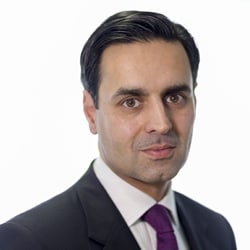 Value-based healthcare (VBH) appears ready for take-off but its potential is still waiting for clearance on the healthcare runway and the delays are as frustrating as an air traffic control go-slow in high summer season.
Value-based healthcare (VBH) appears ready for take-off but its potential is still waiting for clearance on the healthcare runway and the delays are as frustrating as an air traffic control go-slow in high summer season.
A new way of doing business makes sense across the entire health continuum, from patients and hospitals to payers and providers, but introducing it to a matrix with complex scheduling and routing is stalling progress.
The prototype for VBH – where outcomes, not volume dominate the health spend equation – has been refined and streamlined but healthcare systems are still making short hops before committing to what would be an economic revolution.
“It is fair to say there are probably more pilots in this area of innovative contracting than there are in the entire global airline industry,” joked Haseeb Ahmad (pictured right), managing director, Novartis UK, at a presentation at its Basel Campus HQ. “But we don’t need any more pilots; the concept has been proven.”
Novartis, among others, has been doing its best by partnering healthcare systems with trial projects that major in its push for a ‘Triple Win’ for patients, payers and the company, as traditional delivery systems, based on outdated models fashioned to tackle communicable diseases, race beyond their sell-by dates.
Ahmad, speaking at a satellite session at the company’s annual results conference earlier this year, revealed that 10% of hospital Trusts in England have contracts with Novartis which is leading the UK to a tipping point of instituting VBH.
Budget silos
“Globally and in the UK, we are leading in this area because we are collaborating, being transparent about our intent, across different countries looking at pricing arrangements. VBH is a reality and we are willing and prepared to contribute to this change in our healthcare system.”
But he added: “Barriers are being overcome but we need national support and the infrastructure to do it at scale.”
 Stephen Moran (pictured left), Novartis’ global head of strategy, is clear that the transformation from process-heavy systems laden with more than a century of bureaucratic detritus will be driven by science, evidence and the imperative to establish new routes to deal with an ageing world population susceptible to multiple co-morbidities.
Stephen Moran (pictured left), Novartis’ global head of strategy, is clear that the transformation from process-heavy systems laden with more than a century of bureaucratic detritus will be driven by science, evidence and the imperative to establish new routes to deal with an ageing world population susceptible to multiple co-morbidities.
“We are ready to partner with the health services, and the sustainability of the health system as our customer over the long term is absolutely critical. There is no incentive to bankrupt the system,” he said. “What we bring are new innovations. We will drive innovations forward and patients will benefit and we are willing for that to be judged on the value they generate.
“We want to partner to make sure we can get that innovation into the system and look to partner innovative payment models and outcomes.
Standing in the new model’s way are budget silos, the myopic one-year view of budgets, lack of co-ordination across providers and an absence of standardised outcome measures,” he added.
The result is waste and missed opportunity but these could be eradicated with drug assessment based on clinical, patient, system and societal value, according to Novartis. But the public, now armed with social media tools and a growing awareness of their health rights and medical potential, could be a significant driving force for change.
Catalysts
“Part of the reason it is a hard concept for the public at the moment is that you are talking about rewarding providers in the health systems for things that they do badly,” added Mr Moran, who joined Novartis from McKinsey & Company as a strategic assistant to the CEO in January 2015. “They expect it to be based on the benefits to the patients, such as do they live longer; do they have a better quality of life? But you have to explain, ‘No, at the moment it gets reimbursed essentially on volume-like metrics, such as how many operations you have done, how many pills, how many referrals’.
“Measure that, of course, but it doesn’t mean it is the best way of doing things for the health outcome you want.
“But this definition of value isn’t consistently talked about and we are trying to move to assessing our drugs and medicines in a way that can address all parts of the system.”
This slavish devotion to volume is causing huge variations in patient outcomes between and within countries, with Novartis citing studies that 20-40% of US healthcare spend can be classed as wasted.
“Typically this is based on volume-based agreements,” he adds. “Healthcare systems need to find a way to get at this waste so that they can absorb the demographic changes that are coming, along with the advances in innovations in pharmaceutical and medical practices.
“The catalysts will be confident providers taking the lead along with political will, but I think the public is going to naturally embrace this trend. Increasingly, the public is in control of its own data – in their smart phones – and they will decide who to share it with. They will want to know and compare outcomes. It is already being done in other walks of life and it will come to healthcare but there is still that deferential attitude.
“Patients already have the ability to move and choose hospitals and consultants and people are accustomed to that sort of behaviour; they are familiar with dating apps and will say ‘why can’t I match myself to the doctor I want?’. Patients have a lot more power than they realise.”
Societal behaviour shifts can be slow and Novartis is keen to highlight its own initiatives such as the pricing of Kymriah, its CAR-T cell therapy for children with B-cell ALL.
A one-off treatment, it comes with the hefty $475,000 price tag – and a red rag to anti-pharma factions – but put through Novartis’ new value prism, it comes in way under the cost-effective price and significantly lower than the current standard of allogenic stem cell transplant that costs $500,000-800,000 in the first year with follow-up costs. It was then backed with a ‘no response-no payment’ contract.
It has also struck novel reimbursement packages with its heart failure therapy Entresto and its psoriasis treatment Cosentyx.
“We are trying to make our contribution to this shift to value-based care so healthcare systems can eliminate that waste and create the headroom for new innovation,” adds Moran. “What we want to see from an integrated value-based system is the rational allocation of resources across the whole care pathway to whatever intervention made best sense for the outcome of the patient. You might say preventative management may be more effective than a drug, and that may be the case, but we are willing to make a bet on our science that we can bring innovations that can compete on that playing field. All we are asking for is an equal playing field and the knowledge that the incentives will be in place for our long-term investments, otherwise we are not incentivised to pursue innovation.”
Novartis’ corporate muscle – $9bn invested across 200 R&D projects in 2016 reaping 16 major approvals – is part of a wider push for VBH, which has grown in structure and appeal since Harvard Business School Professor Michael Porter advanced the framework a decade ago. Every successful pilot and example across the industry adds another layer of proof and conviction that it is a viable alternative to current models.
“This is important also for Novartis’ self-interest. We are an innovative company bringing innovative medicines to market but the problem is that it takes about ten years, with massive capital expenditure and huge risks, to develop a drug so we need health systems that are sustainable over the long term,” he adds.
The switchover may be painful and costly as systems may have to double run before a new way is clear and established.
“We need visionary policies and we need to know that at the end of our ten-year drug development there will be space in the health system for it, otherwise we will go and do something else.”




